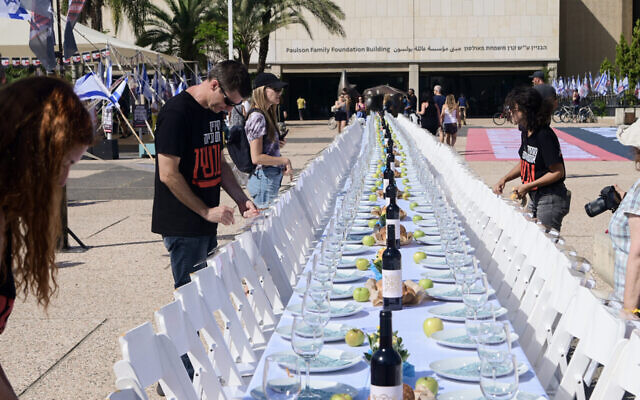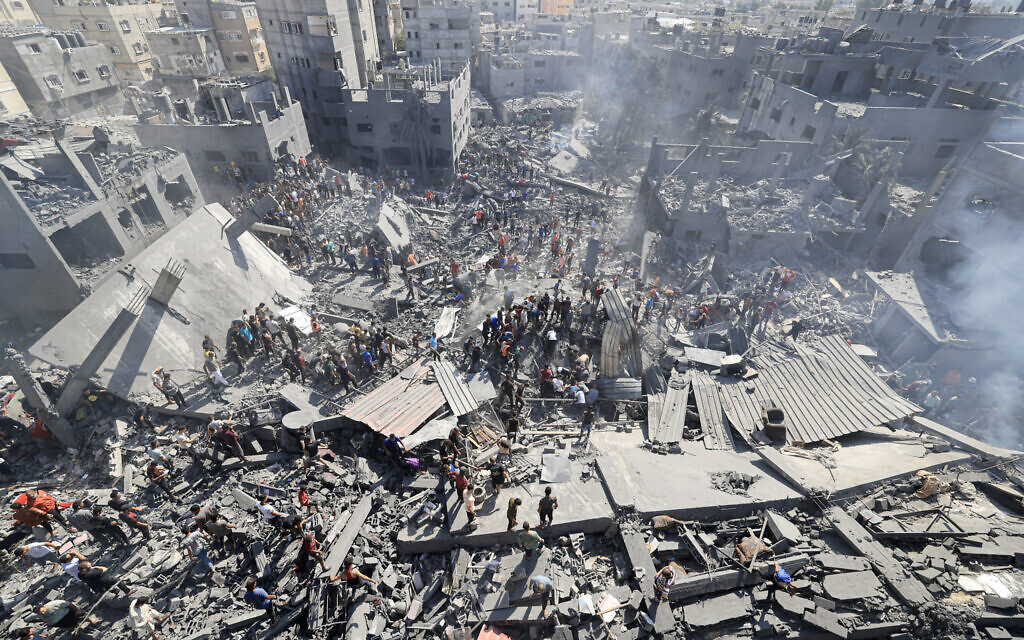By Charalampos Karouzos,
“We cannot but fell that no event has ever destroyed so much that is precious in the common possessions of humanity, confused so many of the clearest intelligences or so thoroughly debased what is the highest. Science herself has lost her passionless impartiality; her deeply embittered servants seek for weapons form her with which to contribute towards the struggle with the enemy.” Spring of 1915, in the midst of WW1, it was then when Sigmund Freud, wrote this introduction in his essay titled “the disillusionment of the war”. In 2023, almost 110 years after the assassination of Archduke Franz Ferdinand and the beginning of the first World War, humanity grapples with another surge of self-inflicted fatalities.
It was the early morning of October 7, during the international day for a healthy habitat, a day that highlights the importance of the basic human right of all to adequate shelter, that Hamas fired thousands of rockets into the southern and central Israel demolishing not only military targets but civilians and non-military infrastructure. The war, as officially declared by Israel, has already killed thousands with many more injured with field reports uncovering the cruelty taking place in this historical area of the Middle East.
The otherwise densely populated cities and villages of the south Israel and the large city of Gaza are forcefully evacuated and at the moment raided by professional soldiers with orders to kill the enemy in the name of peace. As of the latest report from the WHO, more than 1.6 million people in Gaza are in critical need of humanitarian aid with the half of the Gaza’s population being children.
Gaza’s ministry of Health most recent report, at the time of writing this article, more than 1500 children in Gaza were officially confirmed killed. Children, the purest crystallized form of kindness and blithe found in humanity shouldn’t be numbered in the lists of casualties. Over 1500 kind nonchalant souls will not be able to laugh, cry, love and discover the world and themselves growing up. They are the victims of a war they are not responsible for and neither understand. How can a child understand why their house and city they used to live is now demolished?
The advancements of humanity; science, education, housing are all being used as targets for land, sea, and land strikes. We, the deeply embittered servants of science as Freud called us, are using her as the mean to destroy each other. Hospitals, where the injured and ill are treated, are being targeted, while simultaneously after many days, remarkably narrow humanitarian aid is being allowed in the Gaza strip. Geneva Conventions of 1949, the birthplace of the International Humanitarian law, a set of rules that apply in wars, is not solely neglected but it’s violated profoundly by both sides. War crimes, which are crimes against humanity, are creating a catastrophic situation demanding the world to do more; to limit suffering.

Countries and people not directly affected by the war, must not remain naïve during these devastating times but actively get involved. Not picking sides, supporting Israel or Hamas or any other military group, but supporting cessation of fire and providing humanitarian aid. Personal believes exist but must not trespass the order of the ethical code of humanity. The privileged, in peace, countries ought to embrace the moral duty and inherent obligation that accompanies their prosperity and authority, and especially during times of such great conflict act as catalysts, fostering diplomacy and preventing innocent’s blood write future history.
To support the injured civilians, we must not only empower ceasing fire and limit hostilities, but it’s of great importance to provide the necessary humanitarian aid urgently needed and prepare the destroyed cities for their re-habituation. Access to care is a fundamental human right and law of war which developed nations must commit to serve even if their citizens are not the one’s suffering. Further complicating the situation, the Rafah border with Egypt remains closed, 20 mins from the border is the location of medical supplies enough to provide care for more than 300,000 patients and to support essential health services.
Conversely, instead of providing further military support, endorsing the dogma that more weapons lead to peace, governments must collectively construct a plan to uplift the weak and provide resources to rebuild infrastructure for the people. Hospitals, the cornerstone of healthcare in any country have been brutally hit both by the number of casualties and lack of resources available, and literally by rockets. Furthermore, developed nations must passionately advocate for the urgently needed and often neglected adequate mental care of all the people affected by the war. Individuals involved in the war must not embrace alone the demolition of their memories, mental care is necessary to be provided assisting in healing these persistent sore spots.
As we traverse through the annals of time, we find ourselves constantly confronted with a new military conflict, further highlighting the painful realization that war often begets not triumph, but disillusionment. The glimmers of heroism aspiring freedom, quickly fade in the wake of the devastating toll war exacts upon individuals, societies, and the very fabric of humanity. One must examine, is there a core fallacy in the perception of war as a path to noble victories, or is it simply our collective failure to grasp the depth of its tragedy? The scars, both visible and hidden, engraved onto the hearts and bodies of countless combatants and civilians alike, serve as a stark testament to the futility of armed conflicts. Caseation of fire is demanded by the nations of the world, but their role must not be denouncing and solely blaming one party or another but take brave strides envisioning a world where the disillusionment of war yields to the wisdom of peace, where unity and compassion replace death and destruction; discovering where humanity’s true potential resides, not in the desolation of war.
References
- Dr Peeperkorn, Dr Gargavani, Akbar. (2023, October). Emergency Situation Report. In World Health Organization. Dr Richard Peeperkorn, Dr Thanos Gargavani, Bisma Akbar. Available here
- Freud. (1925). On the history of psycho-analytic movement. In Londonthe Hogthart Press and the Psycho-Analysis Institute. Available here
- Joint statement by UNDP, UNFPA, UNICEF, WFP and WHO on humanitarian supplies crossing into Gaza. (2023, October). Available here
- What is International Humanitarian Law? (2004). DVISORY SERVICE ON INTERNATIONAL HUMANITARIAN LAW. Available here




